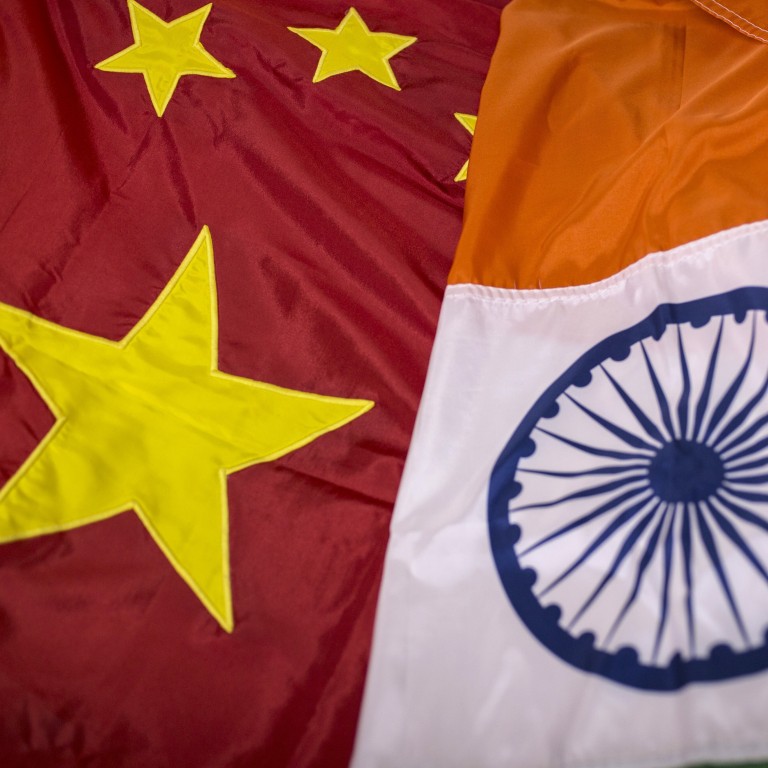
Will India’s UN Security Council role ripple out to China border row?
- New Delhi takes up a non-permanent seat on the international body with ambitions to become a leading power
- China understands India’s aspirations, but can’t afford to give in to its challenges, observer says
The China-India border dispute: its origins and impact
Sun Shihai, director of the China Centre for South Asian Studies at Sichuan University, said that while the non-permanent seat might not help India in the border dispute directly, it would serve as a proof of New Delhi’s rising strategic importance in global geopolitics.
“There is little doubt that India will become more confident going forward, with the [UN Security Council] membership giving a major boost to its long-standing aspiration to rise as a major power. But I don’t think it would have a major impact on bilateral ties with China,” he said.

01:56
India’s military sends supplies to disputed China border ahead of winter
India was elected to the UN Security Council in June, winning overwhelming support from 184 of the 192 UN members. It came just days after the deadliest China-India border conflict in 50 years killed at least 20 Indian soldiers and an unspecified number of Chinese troops on June 15 in the Galwan Valley in Ladakh, a disputed area between the two countries.
From China’s perspective, India’s hardening of perceptions towards China was largely driven by the decline in US-China ties, particularly Washington’s Indo-Pacific strategy.
But for India, China has long been the biggest stumbling block to its desire to become a permanent member of the UN Security Council.
While India claimed it had the support of the four other permanent members – the US, Britain, France and Russia – Beijing has refused to make a clear-cut stance on New Delhi’s membership, citing the lack of consensus with the UN.
China-India friendship unrealistic during border row: Indian foreign minister
Wang Dehua, an expert on India at the Shanghai Municipal Centre for International Studies, challenged India’s claims of broad support, pointing to India’s recent spat with Russia over Foreign Minister Sergei Lavrov’s comments last month.
“I doubt any major powers would materialise their rhetorical support for India’s global ambitions because they all have their geopolitical calculations,” he said.
Amid reports that an annual summit between Modi and Russian President Vladimir Putin would not be held for the first time in two decades, Lavrov openly criticised India’s role in Washington’s Indo-Pacific strategy and the US-led “Quad” alliance against China.
Wang said that while Beijing might find it more difficult to deal with a more confident and more internationally active New Delhi, especially on the reform of the UN, China was fully prepared to tackle challenges from India, including over the border conflict.
“China understands India’s major power aspirations, but we cannot afford to give in to New Delhi’s repeated attempts to challenge Beijing, especially at a time of the worst border stand-off in decades,” he said.
China-India border row: prepare for the long haul in talks, Indian foreign minister says
Wang suggested both sides should set aside their border differences and focus on repairing their diplomatic and economic relations.
Sun also said it was still possible for both sides to climb down from their precarious positions on the border issue, even though India has significantly hardened its stance on China since the border clash and rolled out economic and trade measures targeting Chinese companies.
“The gap between the two sides on the border dispute may be too big to close any time soon, but a prolonged military stand-off is clearly not in the interests of either side. I am hopeful that they may find a mutually acceptable solution this year without appearing weak or making major compromises unilaterally,” he said.
During a year-end speech last month at the China Institute of International Studies, a foreign ministry-linked think tank, Chinese Foreign Minister Wang Yi sought to play down the decline in bilateral ties brought on by the border tensions.
“China values peaceful coexistence and mutually beneficial cooperation with its important neighbour India,” he said.
“The two countries have maintained strategic communication. China has resolutely and appropriately handled the boundary disputes, in an effort to steer China-India relations in the right direction.”

